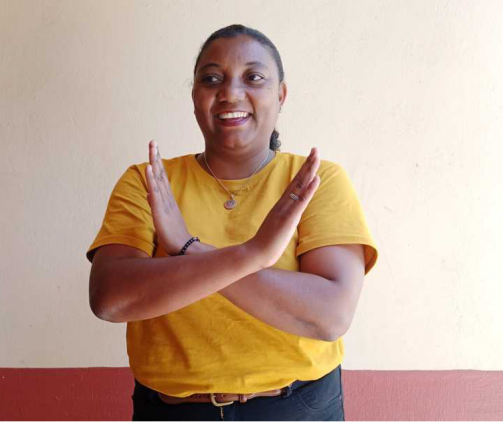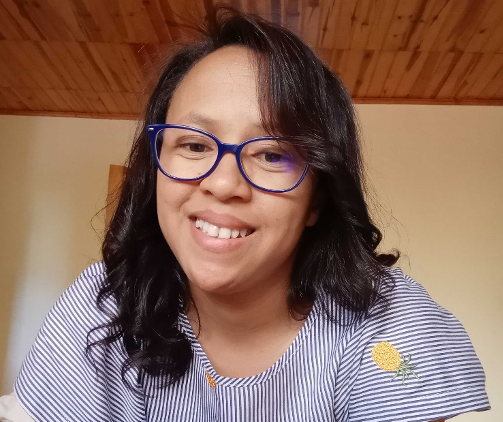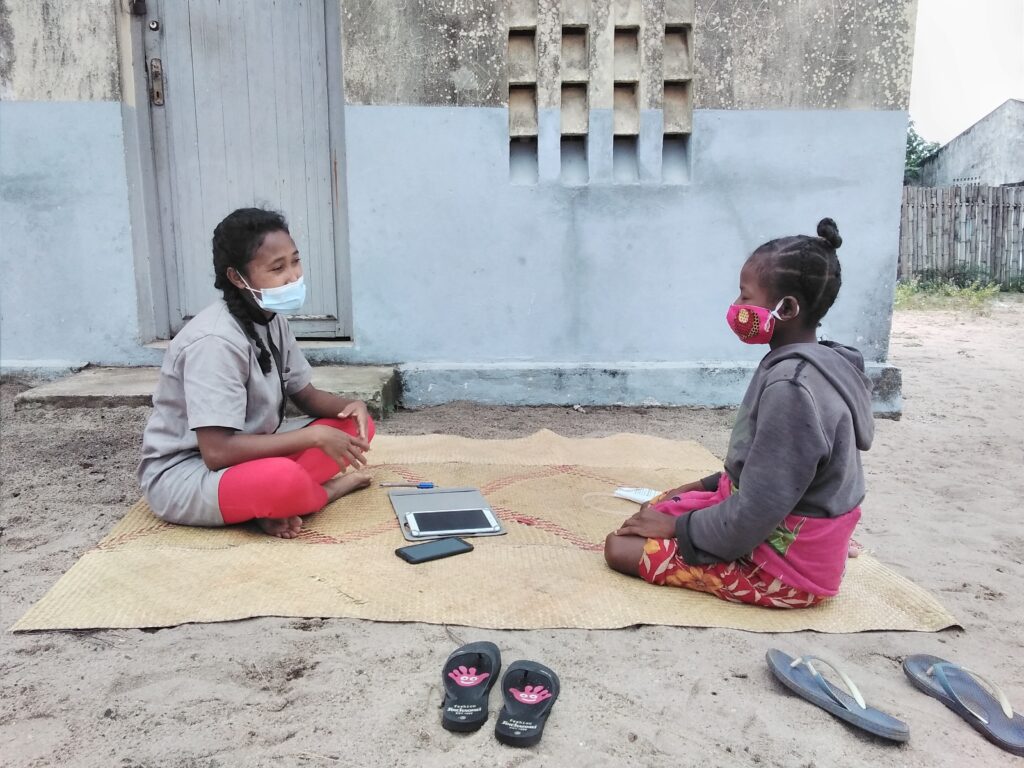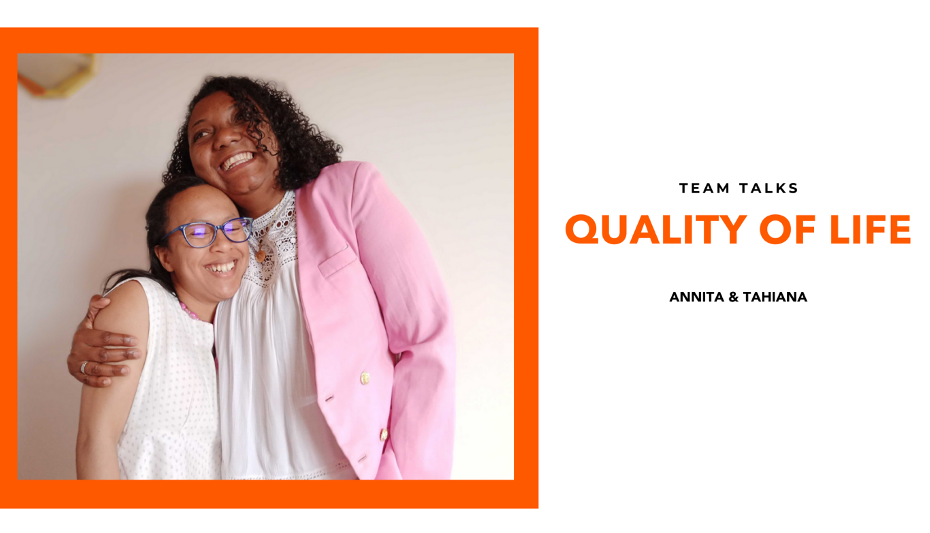Operation Fistula believes that every woman who has lived with and experienced fistula deserves high-quality complete care of her whole person. Our work to create a Quality of Life tool is focused on enabling us to develop a better understanding of how fistula affects a woman’s daily life. As we develop the tool, we are interviewing patients, and recording their particular experiences, thoughts, and feelings surrounding their lives with fistula.
By collecting and analyzing these first-hand accounts we are able to identify commonalities and themes that speak to both the patient’s experience of fistula and how their fistula has affected their overall Quality of Life. This understanding will enable us to build better intervention strategies and care models that are directly informed by the specific needs and wants of patients, because it will have been generated from direct patient testimony, and reflect their lived experiences.
This week, we’re going to be speaking with our Patient Relationship Specialist, Annita, and our Language Support Specialist, Tahiana. They are working on the front lines to implement Operation Fistula’s Quality of Life work – working directly with patients; conducting and translating interviews and data collection to support our Quality of Life research and tool development.
Find out more about the research behind our Quality of Life work in our recent blog post: Enshrining The Patient Voice: How Operation Fistula is Changing The Quality of Life Conversation.
Today, we hear from these two incredible women! In this conversation, they share more about their feelings, challenges, and hopes as they drive this important work forward.


Can you introduce yourselves?
Annita: Yes! Hi, I’m Annita. I have been working with Operation Fistula for almost 2 years. My first role was as a translator, but in 2019 I was promoted to Patient Relationship Specialist.
Before I joined Operation Fistula, I worked with Mercy Ships. While I was there, I saw a lot of people who were very sick, and who needed care. I also met a lot of women who have fistula. At that time, I was helping the nurses and surgeon to translate for patients – from Malagasy to English – and I assisted them as they screened patients for fistula.
In my role with Operation Fistula, I spend a lot of time in our Hope Centers. These are special houses where we nurture and look after patients before and after their treatment at the hospital. I love my job because I get to see the joy these women experience when they enter our care and receive treatment. I’m really grateful for that opportunity to have a job where I get to be my best self, and where I know my work is helping to improve lives. I am motivated by our mission – to end fistula for every woman, everywhere – I know it is a big goal, with many challenges, but we must do it! This suffering should not exist in the world!
Tahiana: Thank you, Annita! Let me introduce myself. I am Tahiana, and I work as the Language Support Specialist at Operation Fistula. I joined the team in August 2021 and hold a Master’s degree in English Literature from the Faculty of Arts and Humanities at the University of Antananarivo. When I was at university my studies were focused on multicultural and foreign language studies, and women’s empowerment, so this job is a dream for me! In my role, I conduct a variety of translation work – including translating patient interviews, serving as a translator for the team, and proofreading various documents. The main focus of my work is the translation and transcription of interviews with fistula patients about their Quality of Life. I love that my translation work is having such a big impact. This work is helping people to develop a deeper knowledge and understanding of the lived experience of fistula patients and is being used to design and develop a special tool to help fistula patients around the world.

Q: Annita, what is it like when you first meet with patients and talk about their lives and how they have been affected by fistula? How do you build trust with patients, and make them feel safe and comfortable?
Annita: Women with fistula experience a huge range of trauma, and major aspects of their Quality of Life are negatively affected by their fistula – their psychological, financial, social, and physical health are all disrupted by the injury. My work with Operation Fistula has given me so much insight into exactly how these women’s lives are disrupted and how they feel about themselves after living with the injury.
You asked about how I build trust with the women I help? My approach has always been to meet them with empathy and openness. When I am speaking with them, I try to share details about myself and my life, so that they don’t feel they are the only person making themselves vulnerable and sharing personal details.
I tell them that I am a single mom and that I know how it feels to be judged by my community because I am raising my child alone. I also tell them stories from my life and share that I understand how it feels to lose loved ones and feel alone. When I do this, what I find is that patients start to open up more. When they hear me sharing openly about my life and my struggles, they feel more able to speak about the challenges that they have faced, and how their lives have been affected by their fistula. In everything I do, I am motivated by wanting to help them recover their confidence, feel proud of themselves, and celebrate their bravery! I try to make them feel that no matter what, they deserve to be happy and to live full lives.

Q: Tahiana, what is your work really about? How do you feel when you are translating all of these women’s testimonies?
Tahiana: A lot of my time and work is spent translating the interviews and testimony collected from our patients via our Quality of Life interviews. When reading and translating these women’s testimonies, I feel so many things: heartbroken, shocked, powerless… I feel heartbroken because as I listen to these women’s stories, and hear the pain and trauma they have suffered, I find myself struggling to capture in words the full horror of what they have been through – language fails in these times. I sometimes struggle to find the appropriate word or tone to successfully translate the patients’ experiences and feelings in the most accurate and appropriate way. It’s very important to me that I accurately convey their words, their tone, and their feelings.
I also experience shock when I listen to these women describe their deep isolation and loneliness, and their experience of bullying and abuse from their families and communities. And, I sometimes feel powerless because, I have translated over fifty interviews, and there is so much pain and struggle in each one that I find myself overwhelmed by the huge amount of work and support that is needed. I am so proud of the work we are doing to help and fully support these women, but there is so much more that needs to be done – I hope for a time when everyone working in fistula comes together to offer complete holistic care and support of the whole woman.
Q: Both of you, have you been particularly affected by a patient’s story? What was it about her story that was so powerful? What did you learn from your conversation with her, and how did it change the way you think about this work?
Tahiana: Yes, I have been particularly touched by a patient’s story. This patient’s story was so powerful because she went through so much. She had an extremely traumatic delivery and her baby was stillborn. She was heartbroken and her body had been through so much trauma… Not only did she develop a fistula – and have to face the awful consequences of her incontinence, but she also had other injuries from her birth. She told me she was afraid she was going to die when she left the hospital and returned to her community… When she returned, what she experienced was abandonment – she was left alone and in isolation from all her loved ones because of her smell, and all the while she was still in deep grief for the loss of her baby, in pain from her injuries, and living in fear for her life. Her story taught me so much and changed the way I think about my work. This patient’s experience was so terrible, it should never have happened! Her testimony made me even more committed to the work to end fistula, and the work to share more detail about exactly how obstetric fistula affects a woman’s life.
Annita: For me, it is that I am particularly affected by every single patient and each of their stories. Each and every single time I meet a patient I know that I am about to connect with a person who has experienced extreme hardship and pain. I cannot let my emotions rule my mood or behavior when I am with a patient. I have to be the very best version of myself. My work challenges me to show up and be present to these women in a unique way. For many of these women, this may be the first time they have told their stories… I might be the first person to hear and listen to their life story! So, for me, it’s not one patient story that moves me, it’s every single patient story. Every time I listen to a patient, I learn more about fistula and recommit myself to ending this injustice.

Q: This is my last question for you: What is your favorite part of this work? What makes you excited to go to work in the morning?
Tahiana: The thing I love best about my work is that I get to connect directly with women in the field, and use my skills to help end fistula in Madagascar. Every morning I am excited to go to work, because, I know that I will learn something new about fistula from the stories and interviews that I will be translating. Then, I can take that learning and that awareness and use it to help our program grow and develop so that we can end fistula for every woman in Madagascar.
Annita: My favorite thing is being able to say that I am part of this organization and team! We are working together every day to end fistula in Madagascar and build programs that can help more women in more countries. Every single day I face fresh challenges and every day I get to learn how to meet those challenges and overcome them. I love to persist and problem solve, and I love working directly with our patients. It is truly joyful to know that we are having such a positive impact on the lives of these women. It is my honor to work with them!
Join us as we continue to drive progress towards our mission, and work for a fistula-free future! Follow us on Instagram, Twitter, and LinkedIn to stay in touch with all our news and updates.
